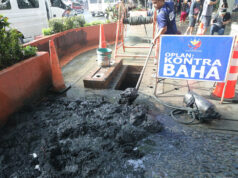Marcos off to Saudi for ASEAN-Gulf summit

By Kyle Aristophere T. Atienza, Reporter
PHILIPPINE President Ferdinand R. Marcos, Jr. is scheduled to fly to Saudi Arabia this week for a summit between Southeast Asian and Gulf leaders.
The palace announced his participation in the Oct. 18-20 summit in an advisory on Oct. 9.
In September, Foreign Affairs Undersecretary Antonio Morales said the visit of Mr. Marcos to Saudi Arabia would “further strengthen the strong, friendly and vibrant relations that happily exist between our two countries.”
The first ministerial meetings between the Association of Southeast Asian Nations (ASEAN) and the Gulf Cooperation Council were convened in 2009 in Bahrain.
Aside from Saudi Arabia, Gulf countries consist of Bahrain, Kuwait, Oman, Qatar and the United Arab Emirates.
“As Riyadh now seeks to diversify the nature of its economic ties beyond oil exports, it will be crucial for Manila to leverage this shift by crafting new areas of cooperation in areas such as food, technology and health,” Don Mclain Gill, who teaches foreign relations at De La Salle University, said in a Facebook Messenger chat.
As Saudi Arabia seeks to broaden ties with countries to the East, the Philippines should leverage its position not just as a Southeast Asian country but also as part of the Indo-Pacific region, he said.
“This also comes at a time when the Philippines is in need of a proactive action plan to broaden the nature of its economic and political relations beyond the traditional framework amidst the exacerbating geopolitical conditions in the region,” he added.
There are about 1.7 million Filipinos in Saudi Arabia, which was the Philippines’ 16th largest trade partner last year.
“The President should explore multilateral and bilateral measures that can reduce the prices of our oil imports, such as advocating that the Gulf states reconsider their decision, as part of OPEC+, to limit oil production until the end of 2024,” said public investment analyst and InfraWatch PH convenor Terry L. Ridon.
Saudi Arabia first implemented a cut in oil output by a million barrels per day in July and has since extended it monthly until the end of the year.
In his meetings with Gulf countries, Mr. Marcos should promote the Philippines as an emerging investment destination and discuss how the government has “liberalized broad sections of the public service sector.”
The large number of Muslims in the Philippines has paved the way for deeper cooperation between it and Gulf countries, said Chester B. Cabalza, founder of Manila-based International Development and Security Cooperation.
“The Philippines has an active and strong Muslim population that creates synergy in maintaining stronger economic and political partnerships with the Arab and Gulf states in West Asia,” he said via Messenger chat.
“Our economic co-existence with the Gulf region is vital in Manila’s goal of achieving to become an upper middle-income economy under this administration,” he said. “Safeguarding our trade relations with Saudi Arabia and members of the Gulf region elevates our interest to maintain peace and order in the region.”



